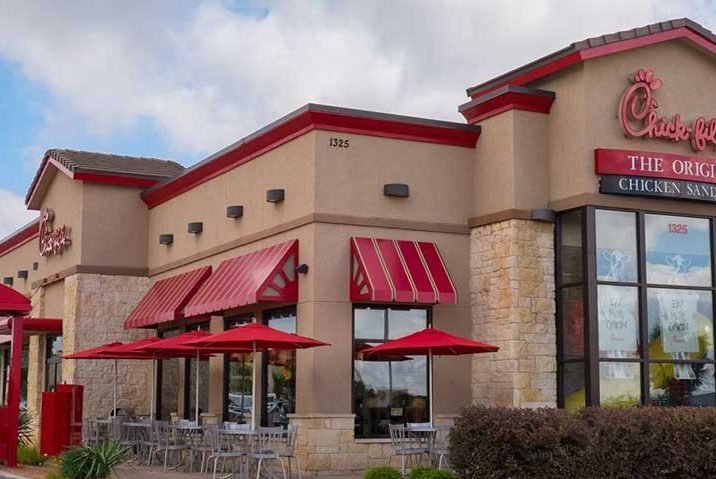Dean Richard Franza’s column appeared in the Tuesday, March 29, online edition of the Augusta Chronicle. The post can be viewed here.
The coronavirus pandemic has had some significant impacts on business in general, but in particular on the service and hospitality industries. Many precautions that were begun to limit pandemic concerns look like they may be here to stay.
For instance, as many of us begin to travel again, we may be in for a rude awakening (pun intended!) on our next hotel visit. For instance, both Hilton and Marriott have indicated that they have eliminated daily housekeeping in most, if not all, of their brands.
In addition, many hotels have cut in-room dining and some have eliminated in-room amenities such as minibars and coffee machines. While these services were primarily reduced or eliminated to limit the interactions of employees and staff with guests, their reduced availability has been extended due to the high cost and/or unavailability of necessary labor to deliver these services.
While the impact of such labor issues appears to be most exacerbated in service/hospitality businesses, these issues seem to be present in most industries. Therefore, two things are happening.
First, given the lack of available labor, many companies have cut back on their services, particularly those things that require a personal touch. Second, since the available labor has become more costly, many businesses have attempted to automate processes whenever possible and have retreated to more cost-driven strategies and tactics.
Given this mass retreat toward lower costs and less service orientation, this might be the right time for you to consider moving your business toward competing by offering superb customer service. There are a number of good reasons for that.
First, if most of your competitors are competing in a similar way, it is likely a good time to compete differently. A customer service-focused strategy will likely attract a significant segment of the market, particularly those with the wherewithal to pay higher prices, leading you to higher margins.
Second, one of the most impactful outcomes of the pandemic has been the isolation of individuals. As the pandemic wanes, people are looking for more interaction and the return to relationships. A firm that focuses on customer service is one that tends to be more interactive with its customers, developing strong relationships with them. Such bonds create more loyal customers.
A great example of a local company that has always competed on strong customer service is Keen Signs and Graphics on Broad Street in Augusta. Recently, I joined the Hull College’s economics professor Dr. Simon Medcalfe, along with students from his “Firm and Industry Studies” course, on a visit to Keen Signs.
We discussed various aspects of the business with owner Lane Keen, who indicated that much of his company’s success came from its emphasis on customer service. Very early on in the life of his company, Mr. Keen realized that he would never be able to provide lower prices than his larger, national competitors, whose size enabled them to purchase materials in larger quantities at lower prices and achieve production economies of scale because of larger orders.
So, he said, it was a natural strategy for his company to compete based on better service. His ability to make each customer a priority has enabled his company to thrive in very competitive market.
You are probably asking yourself: How do I compete through customer service?
First and foremost, think about how you can make your customer’s experience with your company a good one. If you do that and then act upon it, you will likely see increased customer satisfaction and retention, and higher profits. Despite higher prices, a customer who experiences good service is more likely to see more value for the money in her purchase.
The hallmarks of good customer service are personalization and strong communication. To personalize your service, you have to understand your customers. You need to know what they like and what they value. This means that you and your staff must pay close attention to your customers by both listening and observing. Demonstrating you care about your customers will make them more loyal.
Keeping your customer in the loop is also critical, particularly when things are not going well. If a delivery is going to be delayed, letting your customer know in a timely manner is a priority. Communication is another demonstration to your customer that you care and it will build loyalty.
This is all well and good, you might say, but how do you ensure good customer service? The key is hiring the right people and demonstrating to them the value of customer service and how to deliver it. How do you do that in this tight labor market? It is actually easier than you think.
Be willing to pay a little more, but more importantly provide your staff a great work environment. How you treat your staff tends to translate into how they treat your customers. Do you ever wonder why Chick-fil-A dominates customer-service surveys for fast-food restaurants? Much of it has to do with how they treat their employees.
Most of your competitors are probably choosing low costs as their main way to compete in this current environment. If that is the case, you probably cannot win doing the same.
Therefore, be like Keen Signs and Chick-fil-A and hire good people, pay them well and treat them well, and they will help win more business through excellent customer service!







